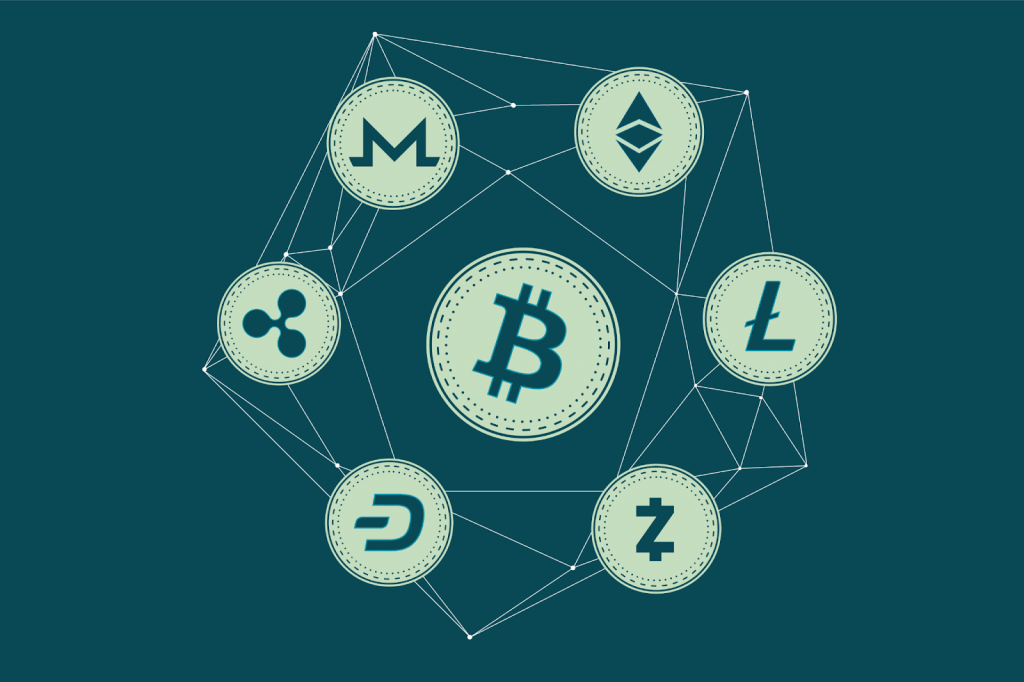This blog post will discuss how blockchain technology has developed through generations. The first generation of Blockchain was focused on basic capabilities and the use of cryptocurrencies or Fintech. In contrast, the second generation added application logic in code-based smart contracts to broaden its applicability. The third generation focused on scalability, interoperability, and developing good user interfaces to compete with existing business applications. Generation 4.0 focuses on cross-industry adoption and making enterprise blockchain more usable in real-world business.
Blockchain 1.0

As we all know, it all began with Bitcoin. The first Blockchain application was to record bitcoin financial transactions. By powering cryptocurrencies, blockchain has already established itself as the enabler of an “Internet of Money.” Blockchain quickly triggered the influx of more cryptocurrencies by providing transparency, accountability, immutability, and security, and we now have over 2,000 different cryptocurrencies in circulation.
The rise of cryptocurrencies into the mainstream market has always been the talk of the town, so we’re all aware of how it’s progressing. There is no turning back now that many consumers and businesses have accepted and using crypto-powered digital payments. Future monetary systems will depend more and more on digital currency as the era of cash ends. Economists predict the future will be a mix of cryptocurrencies, stable coins, central bank digital currencies, and other digital payment systems.
Blockchain 2.0
With Blockchain 2.0 came the era of smart contracts, which enabled Blockchain to grow beyond its original function of powering cryptocurrencies. Smart contracts provide a way for businesses to automate their cross-organizational contracts. Because smart contracts are autonomous computer programs that live on Blockchain, they can execute automatically when pre-defined conditions are met, eliminating the need for intermediaries.
Smart contracts are popular because they are tamper-proof, reduce the cost of verification, exception, arbitration, and fraud protection, and allow automated permission-less execution. Smart contracts enable transparent data recording that is easily verifiable and give all parties involved equal sovereignty over their transactions.
Blockchain 3.0

The rise of dApps has been central to Blockchain 3.0. dApps support various powerful blockchain use-cases such as Defi platforms, Crypto loan platforms, NFT marketplaces, P2P lending, and others through a frontend user interface that calls to its smart backend contracts hosted on decentralized storage.
What Ethereum began in dApp development and Defi found extra dimensions with 3rd generation, dApp development focused blockchains such as Cardano, Solana, IOTA, Nano, XDC, and others. These new entrants focused on improving Blockchain adoption at the mass level by addressing flaws or shortcomings in second-generation blockchains. Third-generation blockchain protocols, powered by new consensus mechanisms such as Proof of Stake, Proof of History, and others, focus on speed, Security, Scalability, Interoperability, and Environment friendliness.
Blockchain 4.0
While Blockchain 3.0 was primarily concerned with addressing the shortcomings of second-generation blockchains, Blockchain 4.0 is concerned with innovating with Blockchain. As businesses across various industries adopt Blockchain faster, we should expect rapid advancements in the blockchain space.
Blockchain 4.0 promises to expand Blockchain as a business-useable environment for developing and running more advanced and mainstream decentralized applications. Blockchain 4.0 will prioritize speed, user experience, and usability by the public.
Conclusion
Blockchain is rapidly approaching its fourth incarnation. As a result, you can be confident that implementing the technology in business use cases will become more viable, timely, and cost-effective. Blockchain 4.0 solutions will provide businesses with more secure, self-recording applications based on decentralized, trustless, and encrypted ledgers rather than just automated record-keeping. Contact SmartOSC if you need help with full-service blockchain development solutions.
Contact us if you have any queries about Blockchain development services, dApps development, NFT marketplace development, Crypto wallet development, Smart contracts development.

